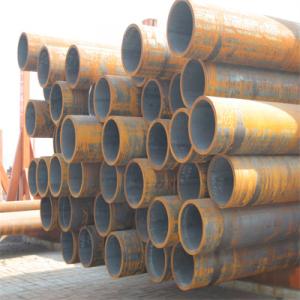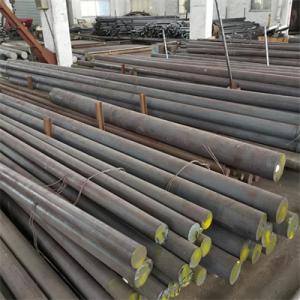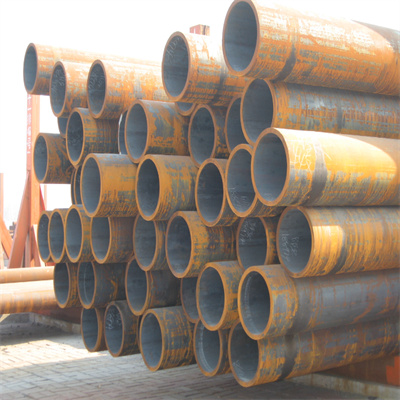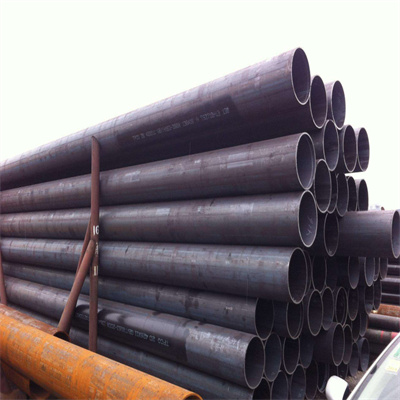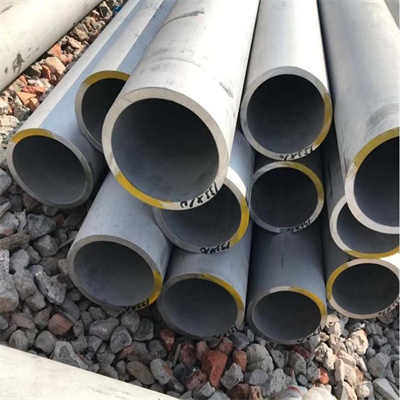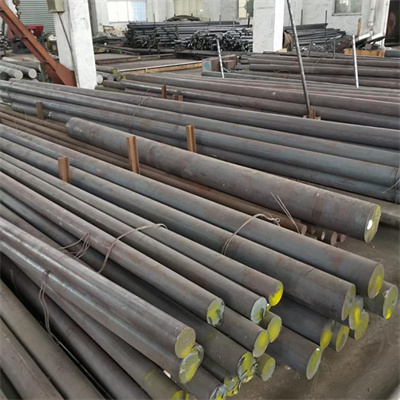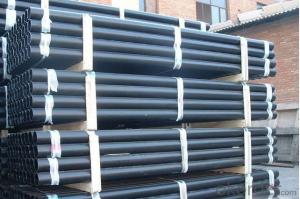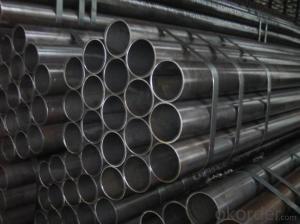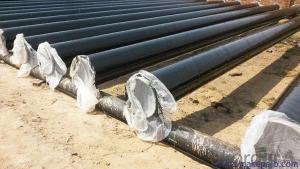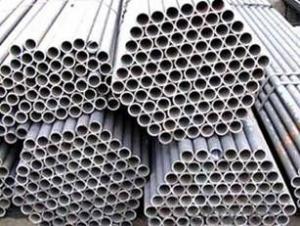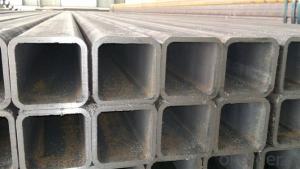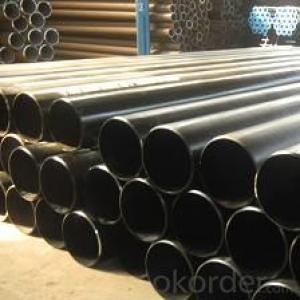Industrial S17400 precipitation hardening seamless steel pipe
- Loading Port:
- Tianjin
- Payment Terms:
- TT OR LC
- Min Order Qty:
- 1 kg
- Supply Capability:
- 1000 kg/month
OKorder Service Pledge
OKorder Financial Service
You Might Also Like
Specification
Industrial S17400 precipitation hardening seamless steel pipe
S17400 is a martensitic precipitation hardening stainless steel, also known as 17-4PH. This material is mainly composed of elements such as iron, chromium, nickel, titanium, and copper, and has high strength, high hardness, excellent welding performance, and corrosion resistance. The alloy composition of S17400 makes it excellent in mechanical properties, corrosion resistance, and processability, especially suitable for various industrial fields that require high strength, corrosion resistance, wear resistance, and fatigue resistance. Its applications are very extensive, including but not limited to manufacturing bearings, pump shafts, valves, mechanical seals, aircraft engine components, rocket engine components, ship components, etc. In addition, S17400 is widely used in the field of medical engineering, such as artificial skeletons, dental braces, pacemakers, etc.
Seamless pipe is a long steel strip with a hollow cross-section and no seams around it.
The characteristics of stainless steel seamless pipes:
Firstly, the thicker the wall thickness of the product, the more economical and practical it is. The thinner the wall thickness, the higher its processing cost will be;
Secondly, the process of this product determines its limited performance. Generally, seamless steel pipes have low accuracy, such as uneven wall thickness, low surface brightness inside and outside the pipe, high sizing cost, and difficult removal of pitting and black spots on the inner and outer surfaces;
Thirdly, its detection and shaping must be processed offline. Therefore, it demonstrates its superiority in high pressure, high strength, and mechanical structural materials.
Buyer Reading
All products in our store are photographed from real objects, with slight color differences in the pictures. For any product issues, please contact our merchant's after-sales service for assistance! The prices of our products are for reference only. There are many models in different series and prices may vary. Please consult the merchant before placing an order.
Products need to be customized in advance (such as non-standard production and processing). Please consult the merchant before placing an order to see if there is stock available. If customization is required, please confirm the order deadline (to avoid delaying your urgent needs).
- Q: What is the outer diameter and wall thickness of the welded steel pipe of national standard DN250?
- DN250 is the nominal diameter, the outer diameter of the steel pipe is 273mm, the thickness is above 6.5mm.
- Q: What are the different testing methods for steel pipes?
- There are several testing methods for steel pipes, including visual inspection, ultrasonic testing, magnetic particle testing, dye penetrant testing, radiographic testing, and hydrostatic testing.
- Q: How are steel pipes used in the construction of underground parking structures?
- Steel pipes are commonly used in the construction of underground parking structures for various purposes such as drainage systems, ventilation, plumbing, and structural support. The pipes are utilized to facilitate the efficient flow of water and sewage, provide ventilation to ensure air circulation and remove harmful gases, supply water to different areas of the structure, and offer stability and strength to the overall construction.
- Q: What is the difference between hot-rolled and cold-rolled steel pipes?
- Hot-rolled steel pipes are produced at high temperatures and have a rougher surface finish. They are known for their flexibility and are often used in applications that require bending or shaping. On the other hand, cold-rolled steel pipes are produced at lower temperatures and undergo additional processing to achieve a smoother surface finish. They are generally stronger and more precise in dimensions, making them suitable for applications that require high precision and strength.
- Q: How are steel pipes used in the telecommunications infrastructure?
- Steel pipes are commonly used in telecommunications infrastructure for the installation of underground cables. These pipes provide protection and support to the cables, ensuring their longevity and efficient functioning. Additionally, steel pipes are used for the construction of telecommunication towers, providing a sturdy framework for antennas and other equipment.
- Q: How are steel pipes protected from corrosion?
- Steel pipes are protected from corrosion through various methods such as applying protective coatings, galvanizing the pipes, or using corrosion inhibitors.
- Q: Can steel pipes be used for conveying hydraulic fluids?
- Indeed, hydraulic fluids can indeed be conveyed using steel pipes. The reason behind this lies in the fact that steel pipes possess remarkable tensile strength and are highly resistant to intense pressure, rendering them ideal for hydraulic purposes. They are capable of enduring the frequently encountered high pressures and temperature fluctuations within hydraulic systems. Moreover, steel pipes boast longevity and durability, guaranteeing dependable and efficient fluid transmission in hydraulic systems. Nevertheless, it is crucial to verify the compatibility between the steel pipes employed and the particular hydraulic fluid being conveyed, in order to prevent corrosion or deterioration of the pipe material.
- Q: What are the different testing methods used for steel pipes?
- To ensure the quality and reliability of steel pipes, various testing methods are employed. These methods include: 1. Non-destructive Testing (NDT): Ultrasonic testing, magnetic particle inspection, and liquid penetrant testing are utilized in NDT to identify surface or subsurface defects in steel pipes without causing any damage. 2. Mechanical Testing: Mechanical testing encompasses various tests to evaluate the mechanical properties of steel pipes, such as tensile strength, yield strength, elongation, hardness, and impact resistance. These tests determine the structural integrity and performance of the pipes. 3. Hydrostatic Testing: This method involves subjecting steel pipes to high-pressure water to assess their ability to withstand expected operating conditions. The pipes are filled with water and pressurized to a predetermined level for a specified duration. Any leaks or deformations are detected during this test. 4. Dimensional Inspection: This testing method ensures that steel pipes meet specified dimensional requirements. It involves measuring critical dimensions such as diameter, wall thickness, and length to verify compliance with applicable standards. 5. Visual Inspection: Trained inspectors visually assess the external appearance of steel pipes using this basic method. They examine the pipes for surface defects such as cracks, corrosion, or irregularities in shape or finish. 6. Chemical Analysis: Chemical analysis is conducted to determine the composition and elemental content of steel pipes. It ensures that the pipes are made from the correct grade of steel and meet required chemical composition standards. 7. Metallographic Examination: Metallography involves examining the microstructure of steel pipes under a microscope to evaluate their quality and integrity. It helps identify internal defects like grain boundaries, inclusions, or improper heat treatment that may impact overall performance. By employing these testing methods, manufacturers and inspectors can guarantee that steel pipes meet necessary quality standards and are suitable for their intended applications.
- Q: How are steel pipes made?
- Steel pipes are made through a process called seamless or welded pipe manufacturing. In seamless manufacturing, a solid steel billet is heated and pierced to form a hollow tube. It is then stretched and rolled to the desired diameter and wall thickness. Welded pipes are made by bending and welding a steel plate or strip to form a cylindrical shape. The welded seam is then heat-treated to ensure its strength and durability. Both processes involve subsequent finishing and inspection to meet the required specifications and quality standards.
- Q: How are steel pipes protected against corrosion in marine environments?
- Steel pipes are protected against corrosion in marine environments through various methods such as applying protective coatings, using cathodic protection systems, and employing sacrificial anodes. These measures create a barrier between the pipe surface and the corrosive elements in the marine environment, thereby increasing the lifespan and integrity of the pipes.
Send your message to us
Industrial S17400 precipitation hardening seamless steel pipe
- Loading Port:
- Tianjin
- Payment Terms:
- TT OR LC
- Min Order Qty:
- 1 kg
- Supply Capability:
- 1000 kg/month
OKorder Service Pledge
OKorder Financial Service
Similar products
Hot products
Hot Searches
Related keywords
